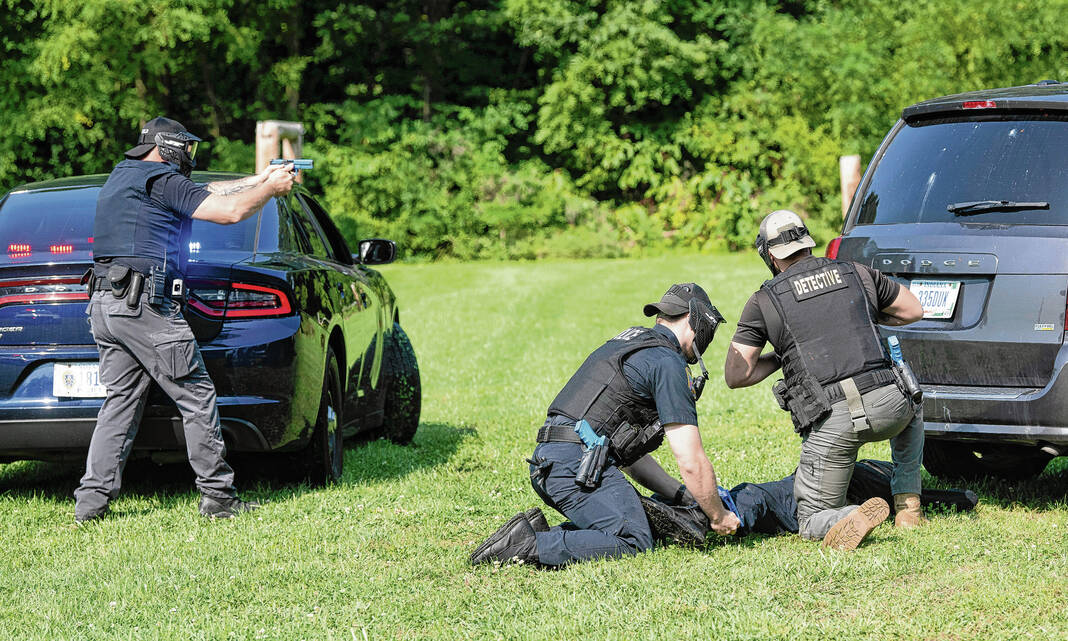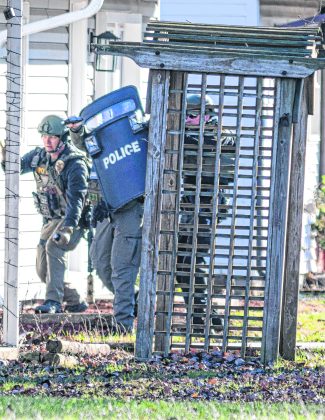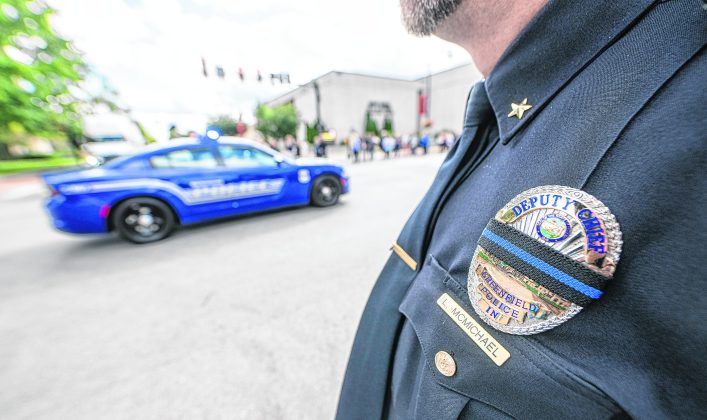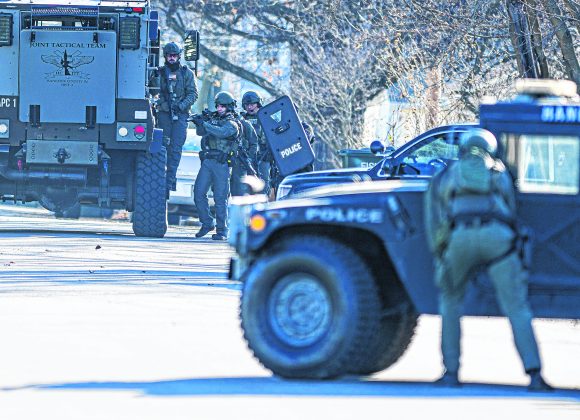HANCOCK COUNTY — When first responders suffer there are many avenues officers can turn to for help, but law enforcement officials say doing so isn’t always as easy as it sounds.
The recent unfortunate passing of an area police officer reminds all while first responders are highly trained to handle the stress of the job, they’re still human and at times need mental, emotional and physical assistance to cope.
County law enforcement officials note while area law enforcement departments offer numerous opportunities for those struggling to reach out and get assistance, some officers find asking for help difficult to do. Local law enforcement officials acknowledge some officers could be afraid if they admit they need some type of mental or emotional assistance, they will be targeted, denied promotions, discriminated against by peers and supervisors or even terminated for stepping forward.
National statistics show the harsh reality of officers struggling has led to some in law enforcement taking their own life. According to statistics on Blue H.E.L.P.’s website, the number of law enforcement suicides in 2022 was 160, an increase from 2021’s figure of 143, with 2020’s count at 146.
“More officers have died by suicide the past several years than are killed in the line of duty,” Greenfield Police Department (GPD) Deputy Chief Chuck McMichael said. “It’s tragic and really no other way to put it.”
McMichael noted officials with the GPD have tried to be proactive and insist everyone of their officers see a mental health official at least once a year.
“It’s a requirement,” McMichael said. “We’re trying to chance that thought that stigma that might be around someone getting mental health help so at least one time of the year for a hour, each officer is in a mental health office… There is no fear of someone finding out someone went because we require everyone to go.”
Officers with the GPD have told McMichael they appreciate the time with a mental health expert to talk about anything and everything that might be bothering them.
“Our officers really do appreciate it,” McMichael said.
National studies show tragically, law enforcement officers have a 54% increase in suicide risk when compared to the civilian population. Studies show the problem seems to be even worse in smaller departments, which may not have an extensive support system or peer support resources. This is concerning, officials said since an estimated 49% of the police departments in the United States employ less than 10 full-time officers.
Officials with the Hancock County Sheriff’s Office say they have an Employee Assistance Program available to all officers, free of charge, for confidential appointments for a variety of needs.
“Additionally, Sheriff (Brad) Burkhart has been working with officials at Hancock Regional Hospital and other entities to begin a mental well being partnership to provide regular access to mental health professionals for all employees,” Capt. Robert Harris said. “The program may require an annual or semi-annual visit by each employee as a ‘check-up.’”
Harris’s educational area of specialty is mental health and psychology with the goal of reducing the stigma around mental health in first responders.
“Too many great people suffer silently, leading to detrimental outcomes, instead of seeking help,” Harris said. “Ideally, first responders should think of their mental well being the same as their physical well being. We go to the doctor for physicals and check-ups, right? We should do the same for our mental health. Just like the family doctor likes to see patients when they are healthy to establish a ‘healthy baseline,’ the same is true for mental health providers.”
Harris said he would love to see an organizational climate where all first responders look out for themselves, each other, and feel completely free to protect their mental well being without negative stigma or fear of any negative repercussions from peers or employers.
“Too many people hide their suffering behind a fake smile, even well-know comedians like Robin Williams,” Harris said. “First responders are excellent at protecting others, we need to be just as good at protecting ourselves and each other.”
On another note, a 2022 national study on the issue stated, suicides that involve a firearm have a fatality rate greater than 82%, an important statistic particularly since police officers nearly always have a firearm available. In fact, the study showed the majority of law enforcement suicides happen at home, using an officer’s own service weapon.








